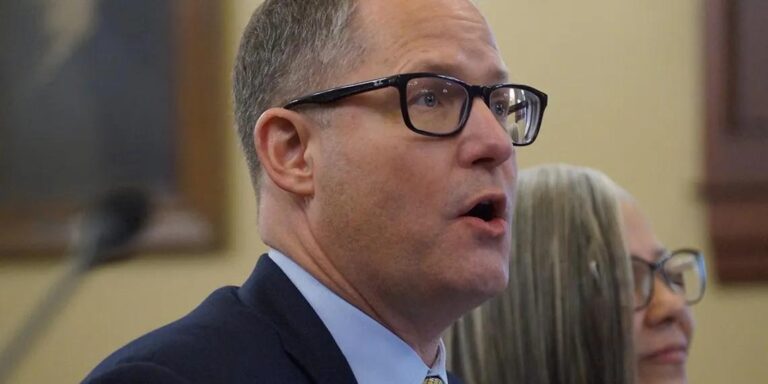Illinois Leaders Oppose Federal Cuts to Medicaid and SNAP Funding
Illinois state officials have expressed strong disapproval of recent federal budget proposals that considerably reduce allocations for Medicaid and the Supplemental Nutrition Assistance Program (SNAP). These cuts, promoted under the Trump administration’s expansive spending package, threaten to remove critical healthcare and food support from hundreds of thousands of Illinois residents who rely on these programs. Leaders caution that such reductions could not only deteriorate public health outcomes but also increase the financial strain on state resources as more individuals face barriers to essential services.
The officials’ concerns focus on several key consequences:
- Higher uninsured rates: A significant number of Illinois residents may lose affordable healthcare coverage.
- Escalating food insecurity: Decreased SNAP funding risks worsening hunger among low-income households.
- Economic repercussions: The state might be forced to divert funds from other vital programs to cover gaps caused by federal cutbacks.
| Program | Current Federal Funding | Proposed Reduction | Projected Impact |
|---|---|---|---|
| Medicaid | $25 billion | 15% | Coverage loss for approximately 300,000 individuals |
| SNAP | $4.5 billion | 10% | Reduction of benefits for 100,000 residents |
Effects of Budget Cuts on Illinois Families and Communities
The proposed reductions to Medicaid and SNAP within the Trump-led federal spending bill have sparked intense criticism from Illinois officials, who emphasize the severe hardships these cuts would impose on the state’s most vulnerable populations. Medicaid is a crucial resource for millions of low-income families, elderly individuals, and people with disabilities, providing access to necessary medical care. The proposed funding decreases threaten to strip away this support, perhaps leading to increased medical debt and deteriorating health conditions in communities already facing economic challenges.
Similarly, SNAP faces important funding cuts that could deepen food insecurity among Illinois households. Experts warn that these reductions may increase hunger rates and undermine efforts to promote economic stability and self-sufficiency. The following table outlines the anticipated impact on Illinois residents:
| Program | Illinois Beneficiaries Affected | Potential Consequences |
|---|---|---|
| Medicaid | 2.5 million | Loss of health coverage, increased emergency medical situations |
| SNAP | 1.3 million | Greater food insecurity, diminished access to nutritious food |
As the legislation advances, Illinois officials continue to advocate for policies that prioritize the health and well-being of families, urging a shift away from austerity measures toward strengthening community resilience.
Illinois Officials Demand Restoration of Social Safety Net Funding
Illinois policymakers have united in their condemnation of the proposed Medicaid and SNAP funding cuts embedded in the Trump administration’s budget package. They warn that these reductions endanger millions of vulnerable individuals, including children, seniors, and low-income families, by threatening access to essential healthcare and nutrition services. State leaders underscore the indispensable role these programs play as foundational social safety nets and call for immediate legislative measures to reverse the damaging budgetary decisions.
In their formal statements, officials have outlined several priorities to safeguard public assistance programs:
- Reinstating full Medicaid funding to ensure thorough healthcare coverage for eligible Illinois residents.
- Maintaining SNAP benefits to address rising food insecurity amid ongoing economic pressures.
- Introducing targeted reforms aimed at improving program efficiency without reducing coverage.
| Program | Proposed Funding Cut | Number of Illinois Residents Affected |
|---|---|---|
| Medicaid | 15% | 3 million |
| SNAP | 10% | 2.5 million families |
Strategies to Safeguard Healthcare and Nutrition Assistance
To protect critical services for Illinois’ most at-risk populations, experts and officials advocate for swift policy interventions aimed at reversing the proposed Medicaid and SNAP cuts. Recognizing the essential nature of these programs in promoting public health and food security, they recommend the following actions:
- Enhancing outreach and enrollment initiatives to reduce administrative barriers and ensure eligible individuals retain access to benefits.
- Increasing adaptability in federal funding to allow states to adapt programs dynamically in response to shifting economic conditions and community needs.
- Strengthening oversight and accountability to prevent unjustified reductions and minimize negative impacts on low-income families.
Additionally, health and nutrition advocates propose the creation of a dedicated task force to monitor policy changes and assess community outcomes. This collaborative body would foster transparency, engage stakeholders, and help maintain the integrity of social safety nets amid ongoing budget discussions.
| Recommended Action | Anticipated Benefit |
|---|---|
| Expand outreach and enrollment | Greater access for eligible populations |
| Increase funding flexibility | Improved state responsiveness to economic challenges |
| Enhance oversight | Reduced risk of harmful program cuts |
| Establish collaborative task force | Improved policy transparency and stakeholder engagement |
Looking Ahead: Protecting Illinois’ Social Safety Nets
As federal budget negotiations continue, Illinois officials remain steadfast in their opposition to the proposed Medicaid and SNAP funding reductions within the Trump-led megabill. Advocates emphasize that these cuts could have far-reaching consequences for vulnerable populations throughout the state, potentially undermining access to essential healthcare and nutrition support.With ongoing discussions at the national level, stakeholders in Illinois and beyond are closely watching developments, urging policymakers to adopt solutions that reinforce, rather than weaken, the social safety nets millions depend on daily.





